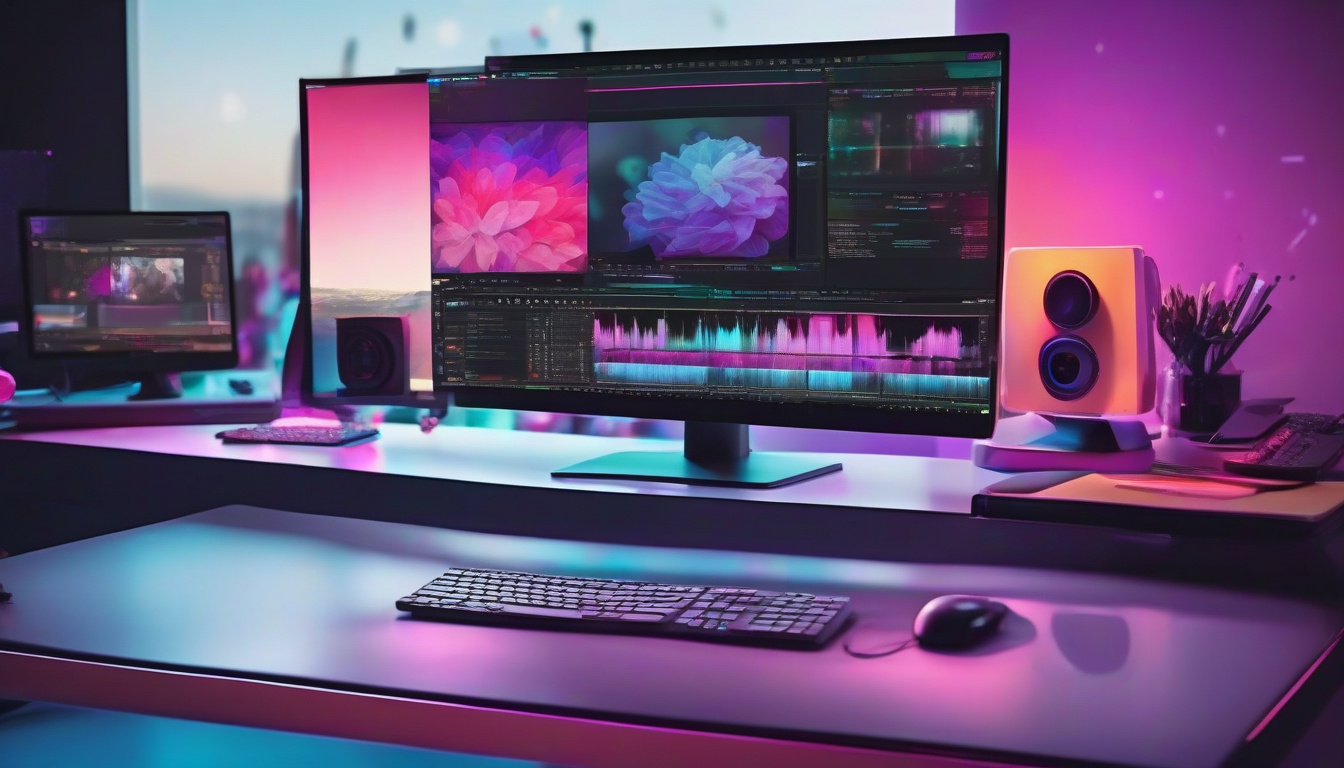
In an industry as dynamic and fast-paced as filmmaking, harnessing the power of technology can make all the difference.
Artificial Intelligence (AI) is rapidly transforming the landscape, providing filmmakers with innovative tools that can streamline processes, enhance creativity, and elevate the overall quality of their work.
Whether you are a seasoned director or an aspiring filmmaker, understanding AI tools for filmmakers can give you a competitive edge.
In this article, we will explore how AI is reshaping various stages of filmmaking—from scriptwriting and video editing to visual effects and marketing.
Let’s dive in and revolutionize your filmmaking experience with these essential AI tools.
Get Professional Screenplay Coverage in Minutes, Not Weeks!

Key Takeaways
- AI tools are transforming the filmmaking process, making it more efficient and creative.
- Essential AI tools streamline scriptwriting, allowing for more time to focus on storytelling.
- Video editing and post-production can be significantly enhanced through advanced AI software.
- AI is revolutionizing visual effects, enabling filmmakers to create stunning visuals with ease.
- The future of filmmaking will increasingly integrate AI, presenting new opportunities for innovation and creativity.
Introduction to AI in Filmmaking
In recent years, the emergence of AI tools for filmmakers has revolutionized various aspects of the filmmaking process, from scriptwriting to post-production.
As the industry embraces innovative technology, filmmakers are leveraging artificial intelligence to enhance creativity, streamline workflows, and improve decision-making.
AI tools can analyze vast amounts of data, helping filmmakers predict audience preferences and optimize their content accordingly.
Additionally, these tools can automate repetitive tasks, which allows creative professionals to focus on what they do best: telling compelling stories.
As we delve deeper into the world of AI in filmmaking, we will explore how these cutting-edge tools are reshaping the landscape of cinema, providing unprecedented opportunities for filmmakers to deliver exceptional visual narratives.
Essential AI Tools for Scriptwriting
In the dynamic landscape of filmmaking, having the right AI tools for filmmakers can significantly streamline the scriptwriting process and enhance creativity.
These innovative technologies offer a variety of functionalities, from generating story ideas to refining dialogue.
One standout option is AI-driven script generators, which can help screenwriters brainstorm unique plot twists and character arcs based on established genres or themes.
Additionally, tools like Grammarly not only improve grammatical accuracy but also provide stylistic suggestions tailored to the script’s tone and pacing.
Another notable AI tool is Celtx, which incorporates AI-driven collaboration features, allowing writing teams to communicate and refine screenplays in real-time, regardless of their geographical locations.
By leveraging these AI tools for filmmakers, creatives can save time and inspire their writing process, ensuring their scripts are both compelling and polished.
‘The greatest innovation of the 21st century will be the intersection of biology and technology. It will be at the convergence of these two fields that we could potentially see our greatest achievements.’ – Steve Jobs
Get Professional Screenplay Coverage in Minutes, Not Weeks!

AI Tools for Video Editing and Post-Production
In the rapidly evolving world of filmmaking, the integration of AI tools for filmmakers has revolutionized the video editing and post-production process.
These innovative technologies offer a range of features that enhance efficiency, creativity, and collaboration.
With AI tools, filmmakers can automate mundane tasks such as video indexing and color correction, allowing more time for creative decision-making.
For instance, platforms like Adobe Premiere Pro’s AI-powered features enhance workflows by suggesting edits, picking the best shots, and even generating captions instantly.
Furthermore, AI-driven analytics can assist filmmakers in understanding audience preferences, enabling more informed storytelling.
The accessibility of these tools means that filmmakers of all levels can harness the power of AI to elevate their projects and streamline production timelines.
As the demand for high-quality content grows, embracing AI tools will not only keep filmmakers competitive but also allow them to focus on their passion for storytelling.
Enhancing Visual Effects with AI
In recent years, the landscape of filmmaking has been dramatically transformed by the advent of AI tools for filmmakers, revolutionizing how visual effects are created and implemented.
These cutting-edge technologies facilitate a range of processes from pre-production to post-production, enabling filmmakers to achieve stunning visuals with unprecedented efficiency.
AI algorithms can automate tedious tasks such as rotoscoping and object tracking, significantly reducing the time and labor required for complex effects.
Moreover, AI-powered software can analyze scenes for lighting and color grading, assisting directors and cinematographers in achieving their artistic vision with ease.
As these tools continue to evolve, filmmakers are increasingly harnessing the power of AI to enhance visual effects, allowing for creativity to flourish while streamlining workflows and maintaining high-quality standards.

Using AI for Marketing and Distribution
In the rapidly evolving landscape of the film industry, AI tools for filmmakers have emerged as game-changers, particularly in the realms of marketing and distribution.
These advanced technologies leverage machine learning algorithms to analyze audience data, predict trends, and optimize marketing strategies, helping filmmakers reach their target audiences more effectively.
By using AI tools, filmmakers can create personalized marketing campaigns that resonate with potential viewers, enhancing their outreach efforts.
For instance, AI can analyze social media engagement and viewing patterns to identify the most effective platforms for distribution, timing for release, and even suggest the type of content that will engage their audience.
Additionally, AI-driven data analytics can streamline the distribution process, allowing filmmakers to collaborate with distributors and platforms that are best suited to showcase their work.
This integration of technology not only maximizes the potential for box office success but also ensures that independent and emerging filmmakers can compete in a crowded market.
With AI tools for filmmakers making strides in marketing and distribution, the future of film looks increasingly bright.
Future Trends: AI Innovations in Filmmaking
The landscape of filmmaking is rapidly evolving, thanks to the integration of AI tools for filmmakers.
These innovative technologies are not only streamlining production processes but also enhancing creativity and storytelling.
One of the most exciting trends is the use of AI-driven editing software that can analyze hours of footage and suggest seamless edits, significantly reducing post-production time.
Additionally, AI algorithms are making strides in scriptwriting by analyzing existing screenplays and enabling writers to generate unique plot ideas or dialogues, tailored to specific genres and audience preferences.
Furthermore, virtual assistants powered by AI are helping directors with scheduling and logistics, allowing them to focus more on the artistic aspects of their projects.
As this technology continues to advance, filmmakers will have unprecedented tools at their disposal, fostering a new era of cinematic innovation and creativity.






